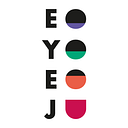A Conversation on Diversity, Equity, and Inclusion Through the Lens of Social Justice in America
By Megha Goel
It’s not one entity that can solve the problems of racial inequities in America. We need to come together as a community and create solutions. A lot of schools, entities, and nonprofits are bringing experts to work with teachers but there is no sense of urgency. They are talking methods and creating long term plans and strategies. But that’s not fast enough, we really need to ACT NOW. “When we allow authentic discussions with youth, in programs like YODJ or other discussion series, the vulnerability facilitates healing, new thoughts and creates trust,” says Mai Moore.
This conversation was the focus of the July 23, EYEJ Speaks episode entitled Diversity, Equity, and Inclusion, which featured an incredible panel of speakers to discuss in length the best practices and strategies to create a more equitable society and the role of young people in the movement. Moderated by Haley Finnerty, the panel included insights from:
- Mai Moore, Founder & Executive Director EYEJ
- Erica Merritt, Founder & Principal Consultant, Equius Group
- Erica DeValve, Graduate Student at Fuller Theological Seminary, Masters of Divinity Program
- Yumi Ndhlovu, Rising Junior, Hathaway Brown
EYEJ Founder Mai Moore set the foundation of the discussion by highlighting ‘diversity, equity, and inclusion’ to be the core of what EYEJ is. “EYEJ leads with ‘Diversity, Equity, and Inclusion’ internally; whether it’s with our youth through programming, our team or the board. Furthermore, diversity is important in order to create great solutions… Inclusion is our responsibility. We need to include all. We not only bring our neighbors and the community members to the table for representation but also have their participation in decision-making. Equity is the most important. It’s our responsibility to bring all to an even field.”
Key Takeaways
- With Black Lives Matter, we hear many conversations on Diversity, Equity, and Inclusions in mainstream spaces and in ways that we haven’t seen before. Everybody has anti-racism statements to make. All of these are great if they lead to an actual, sustainable, and measurable change. Expert speaker, Erica Merritt, best highlights, “Black Lives Matter. Now what? I want people to move from lip service and language to actual practice. What is going to be different in organizations, schools, government agencies, companies as a result of this declaration?” There is a growing understanding of the reality of physical violence and vandalization by police on black bodies. But moving beyond physical, there is a need to understand psychological violence that is happening in organizations. It can be tempting for institutions to look outward and try to solve issues of police violence. While this needs to be addressed, they also need to turn inward and make organizational changes in their internal practices and policies.
- Performative allyship that begins and ends with hashtags on social media should not take the center stage in the search for equality. Though public allyship can help stimulate positive change, it is not enough. Intentionality and taking actions off the Instagram stage can speak louder and help disrupt unjust systems. Racism scholar Ibram X. Kendi was mentioned in the program, quotes: “One is either racist or anti-racist. There is no room for neutrality, and there is no such thing as a “non-racist.” We either support policies that are leading to racial inequities and injustice or support policies that are leading to justice and equity for all. Our youth speaker chimes in by saying that people need to realize their white privilege and be an ally in the fight against racism. They need to step up to the plate, act as allies, and use their privilege for good.
- School curriculum needs to be designed in a way that youth are taught stories that reflect their own experience as well as the experiences of others. Emily Style’s concept of “Curriculum as Window and Mirror” was mentioned here. Yet again, expert speaker, Erica shares her experience, “Back in high school, I was reading things that were not taught in the classroom.. ‘Ivan Van Sertima — They came before Columbus’, ‘Black Rage’. The curriculum is important to learn things that are affirming to our identity.”
- It’s often said ‘youth is the future’, and much pressure is put on them to bring change. Youth voices and perspective on policies is extremely important. But adults and communities need to support youth equally. Yumi Ndhlovu goes on to highlight the Youth Council’s work on getting broadband internet in Cleveland, she says: “How are the youth supposed to study online when they do not have internet..this is one example of inequities in Cleveland.”
In closing, panelist Erica Merritt summarized the discussion best, “We have to get to a point where this feels like everyone’s work..this feels like an American problem and not a black people problem.” She goes on to say, “Racism exists at the structural level and institutional level. We really have to look broadly; at policy, at practice, and of course at our own individual behaviors and those of the people around us.”
Check out Erica DeValve ’s powerful 2018 blog post about her commitment to youth programming and the work of EYEJ.
To watch the entire episode of EYEJ Speaks on Diversity, Equity, and Inclusion visit our Facebook page. Listen to the behind the scenes conversation with guests on the EYEJ Podcast on Apple Podcast, Spotify, and Google Podcast. Connectivity is the next episode of the Facebook Live discussion series taking place on Thursday, July 30, 2020, at 10 am ET. Please be sure to register and join this community conversation. Please be sure to RSVP on Facebook or via Zoom to be part of this community conversation.
